Are you in need of a rental application that accommodates your disability? Crafting the perfect letter can feel daunting, but it's essential for ensuring your specific needs are met. By clearly outlining your requirements and providing relevant documentation, you can create a compelling case for your prospective landlord. Dive into our comprehensive guide to discover how to effectively communicate your situation and enhance your chances of approval!
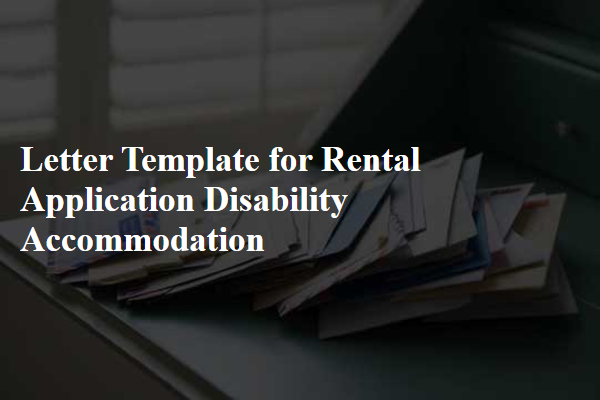
Applicant's personal information and contact details.
An application for disability accommodation in a rental property requires precise personal details. The applicant should provide full name for identification purposes, address for verification, and a reliable phone number for communication. Email address enhances contact efficiency. Additionally, relevant information about the disability, such as the nature of the condition and specific needs for accommodation, should be clearly stated to ensure compliance with disability rights laws. Documentation, such as a letter from a healthcare provider, may be attached to substantiate the request for necessary modifications in the living space to ensure accessibility and comfort.
Request for specific accommodation needs and justification.
A rental application for disability accommodation must articulate specific needs clearly. For instance, individuals with mobility impairments may require wheelchair-accessible features such as ramps, wider doorways, or a ground-floor unit in compliance with the Americans with Disabilities Act (ADA). Those with visual impairments may need enhanced lighting and tactile floor indicators for greater navigation ease. It is crucial to include the medical recommendation (from a licensed physician) justifying these requirements. This recommendation should detail how these accommodations will improve overall living conditions and ensure safe access to necessary facilities. Additionally, if applicable, mention any support from local disability advocacy groups that can provide further validation of the need for these specific accommodations in the requested rental property location.
Supporting documentation from a healthcare provider or relevant authority.
A rental application for disability accommodation requires substantial supporting documentation from a qualified healthcare provider, such as a licensed physician or clinical psychologist, to validate the need for specific accommodations. This documentation must outline the nature of the disability, providing detailed insights into how it substantially limits major life activities, according to guidelines established by the Americans with Disabilities Act (ADA). Key elements should include a professional assessment, recommendations for necessary adjustments to the living space, and any pertinent medical history relevant to the requested modifications. The healthcare provider's credentials must be included, along with contact information, ensuring credibility and the ability to provide further clarification if required. Local laws, such as the Fair Housing Act, may also stipulate specific accommodation requests that support independent living for individuals with disabilities, emphasizing the need for housing that meets personal accessibility requirements.
Statement of willingness to discuss and negotiate accommodations.
Individuals seeking rental accommodation often face challenges related to disabilities, necessitating a proactive approach in communicating their needs. Approach landlords with a clear statement of willingness to discuss and negotiate necessary accommodations, such as wheelchair accessibility features, designated parking spaces, or modifications like grab bars in bathrooms. Highlight examples of previous successful negotiations, such as adjustments made in similar rental settings, showcasing a commitment to fostering an understanding and accommodating relationship. Explain the importance of open dialogue in creating a supportive living environment, ensuring landlords recognize the shared goal of maintaining a positive rental experience for all parties involved.
Assurance of understanding landlord's policies and lease terms.
A rental application for disability accommodation requires careful attention to policies and lease terms set by landlords. Understanding clauses regarding modifications for accessibility is crucial. Some landlords may allow modifications, while others may have strict rules. Familiarity with Fair Housing Act provisions ensures protections for individuals with disabilities. Knowledge of regional housing laws also helps navigate the application process. Detailed documentation, like medical verification or disability status, may be required. Complete application forms accurately to demonstrate compliance and readiness to adhere to landlord expectations. Clear communication about specific needs promotes transparency and fosters a positive landlord-tenant relationship.
Letter Template For Rental Application Disability Accommodation Samples
Letter template of rental application for disability accommodation request.
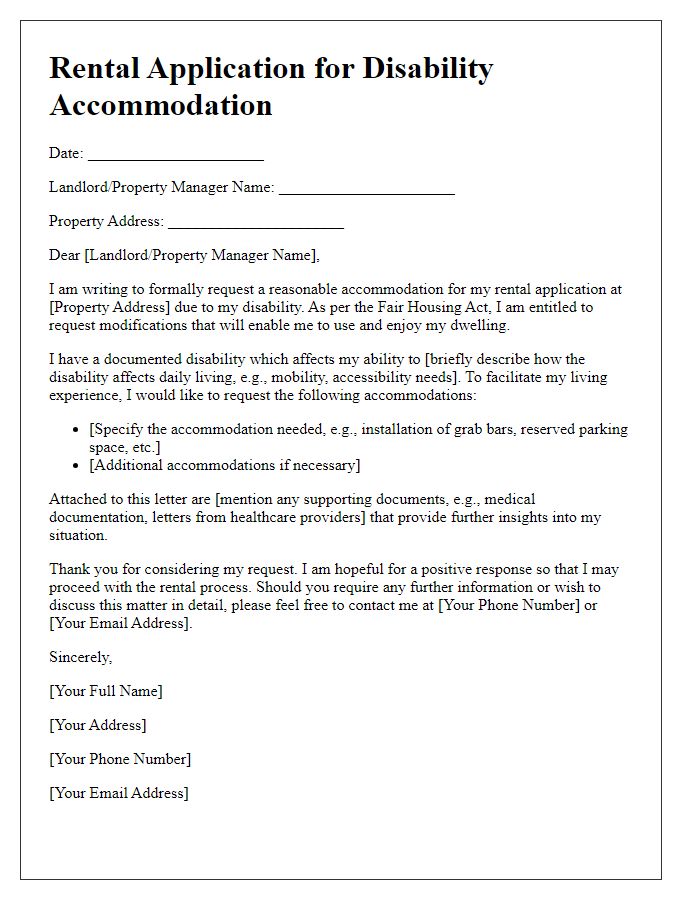
Letter template of rental application for special needs housing consideration.
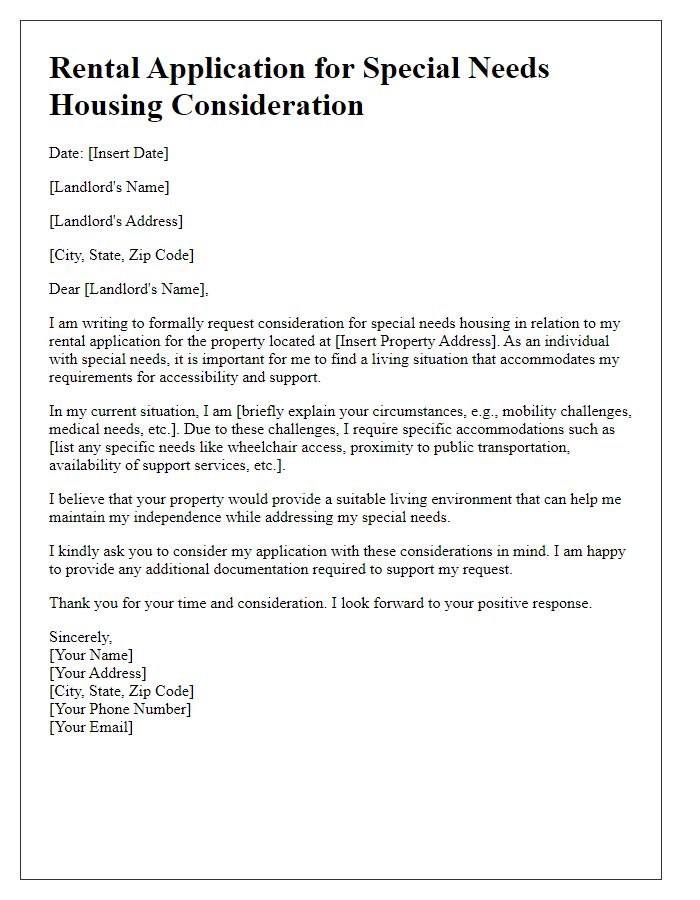
Letter template of rental application with request for disability-friendly features.
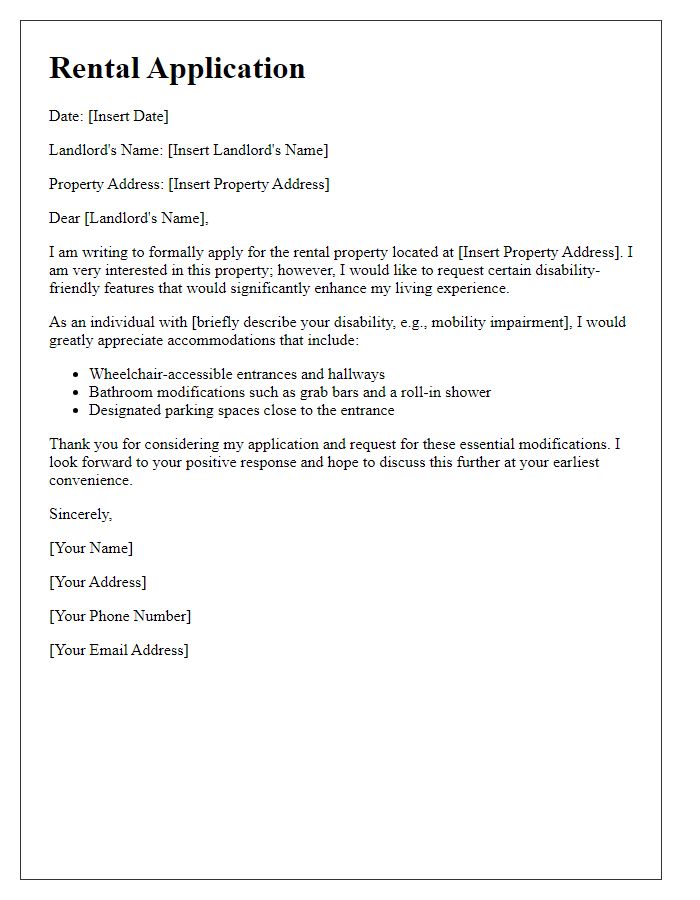
Letter template of rental application for modified living conditions due to disability.

Letter template of rental application emphasizing need for ADA compliance.
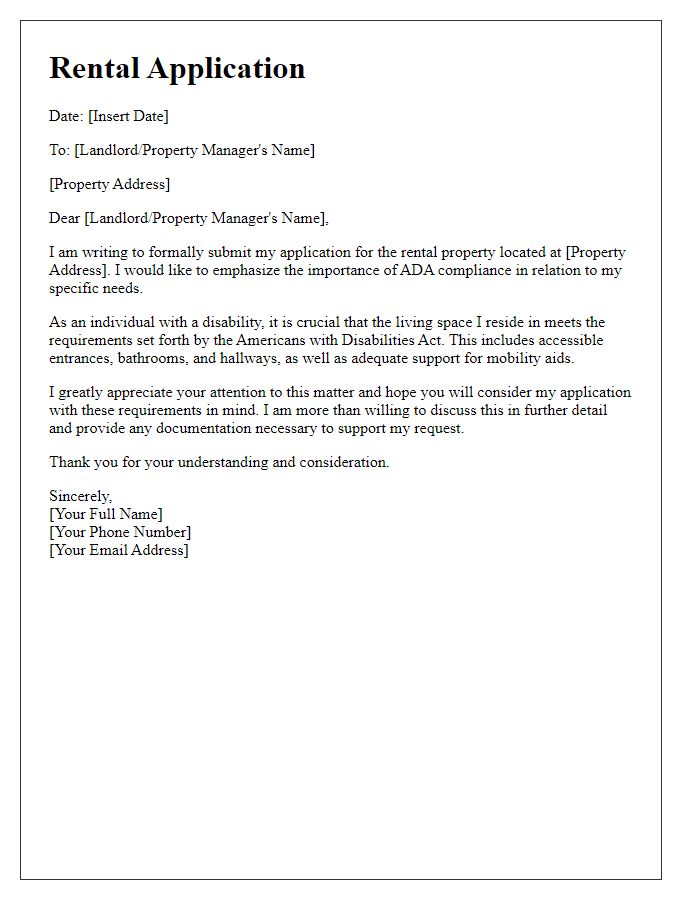
Letter template of rental application for accessible unit consideration.
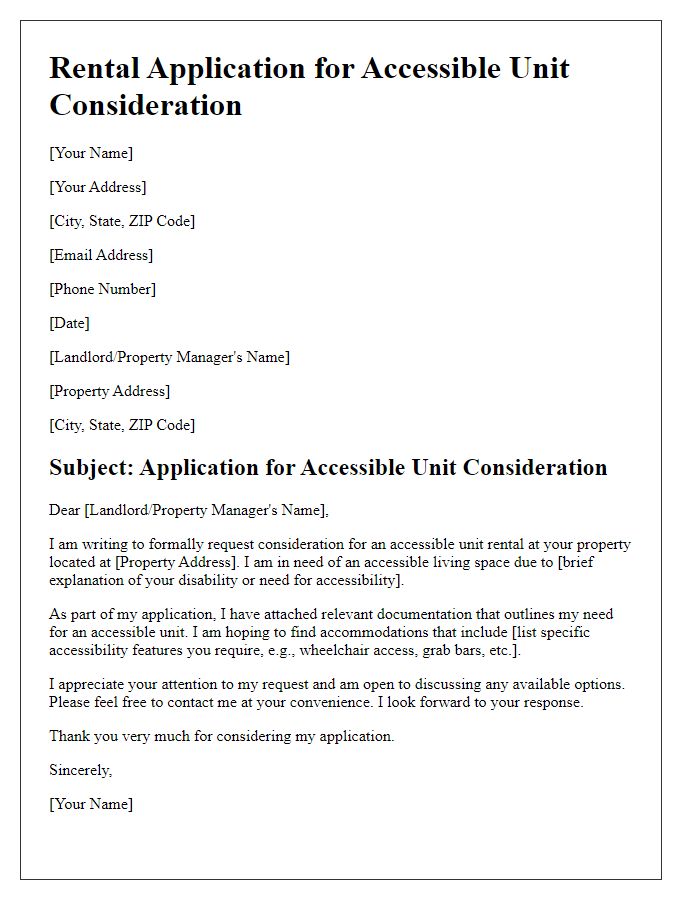
Letter template of rental application highlighting mobility assistance requirements.
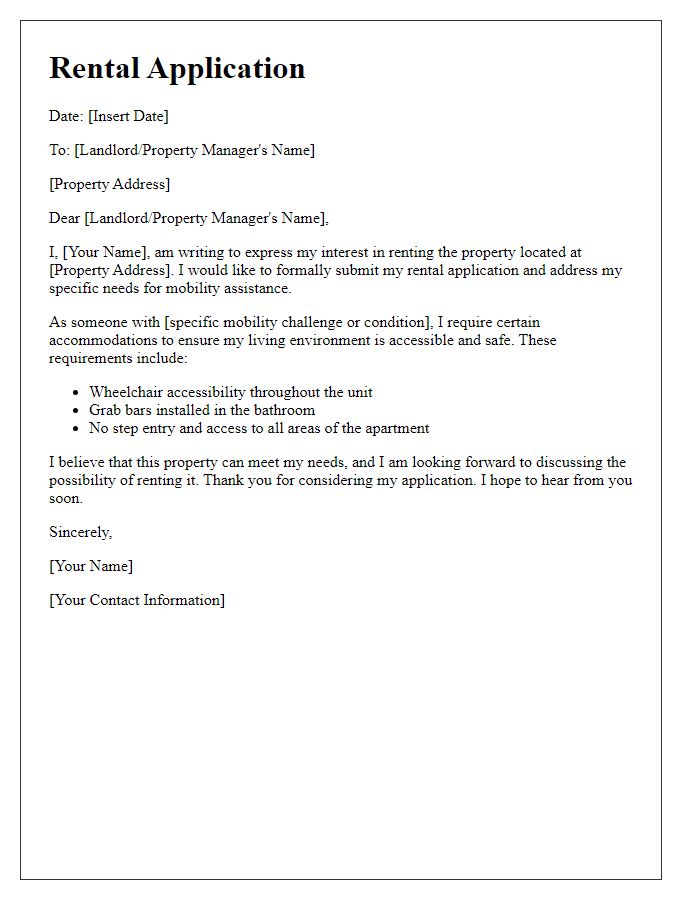
Letter template of rental application for support in finding wheelchair-accessible home.
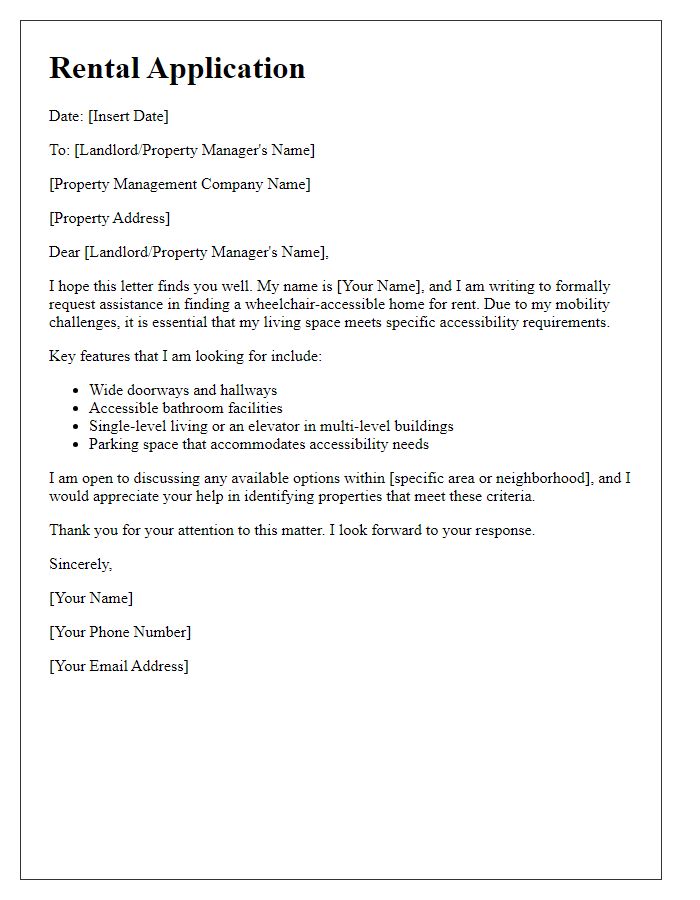

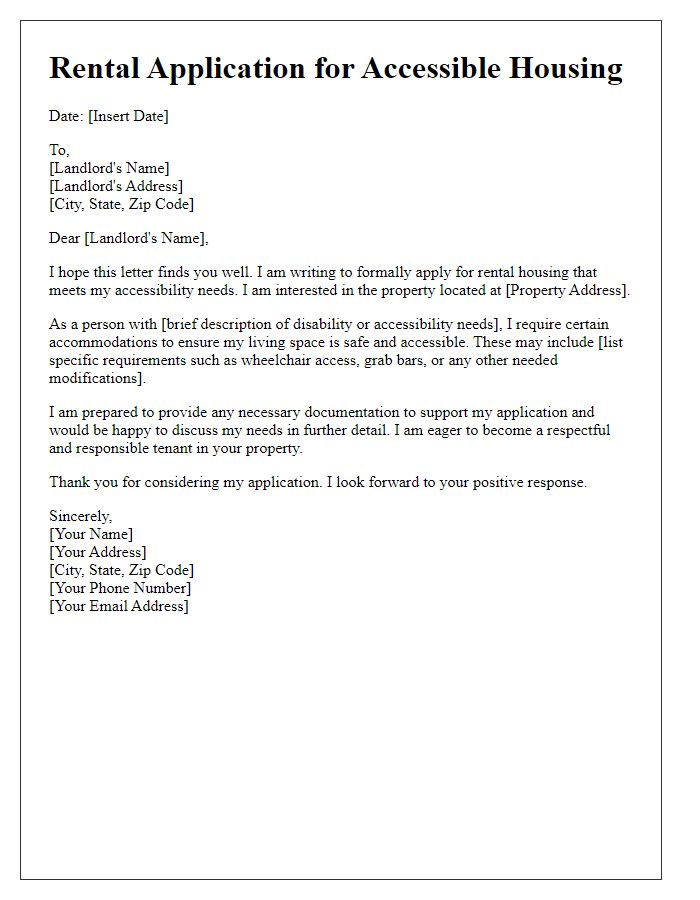
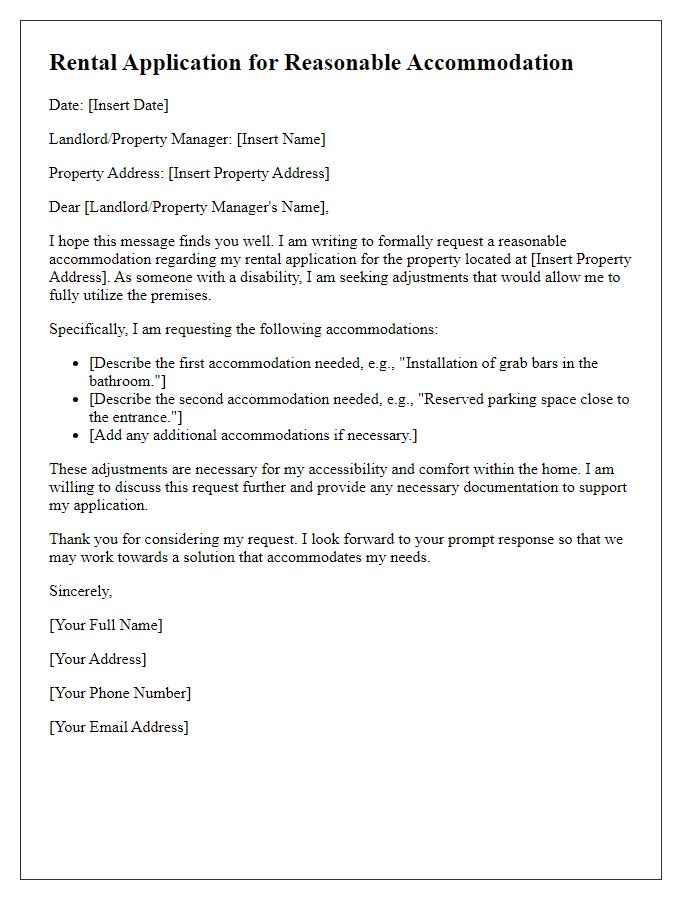

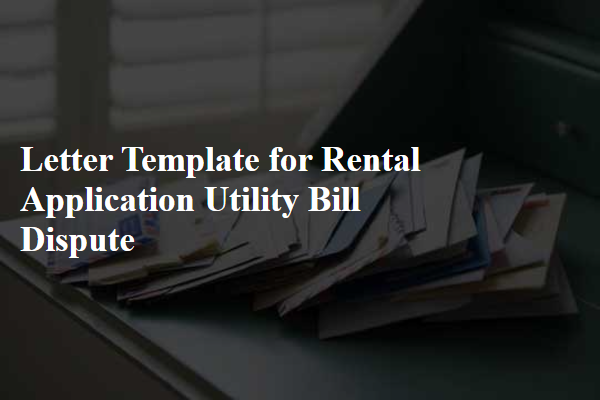
Comments